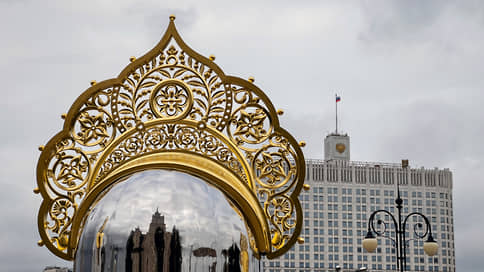Approaches to the government counter are expanding – Newspaper Kommersant No. 44 (7489) dated 03/16/2023
[ad_1]

The package of amendments to procurement legislation promised by the senators has been submitted to the State Duma – although the Federation Council insisted on a moratorium on the law on public procurement (44-FZ), the project was limited to point amendments tested as part of the government’s anti-crisis packages. We are talking about speeding up the procurement process through simpler procedures – small-volume purchases and request for quotations. The Federation Council emphasizes that the project is a compromise and is supported by the government, the measures will accelerate the flow of budget funds to enterprises. In the meantime, the White House is simplifying the access of suppliers from the EAEU to the Russian state order market – Eurasian contractors can cover a possible shortage of goods due to the departure of foreign suppliers.
The head of the Federation Council Valentina Matviyenko, her deputies Nikolai Zhuravlev and Andrey Turchak and a group of senators submitted to the State Duma a package of amendments to the law on the contract system (44-FZ), reducing the time of procurement procedures. In early February, we recall, Ms. Matvienko made a loud statement about the need to introduce a moratorium on the operation of the law on public procurement (44-FZ) for the duration of the Russian military operation in Ukraine in order to give the regions the opportunity to “master” the funds faster. The idea of a large-scale restructuring of the procurement system, however, looked unrealistic – without the 44-FZ, the budget would have no reason to pay for government orders (see Kommersant on February 6).
As a result, the senators limited themselves to targeted amendments to 44-FZ, including raising the price threshold for requesting quotations from 3 million to 10 million rubles. and removal of restrictions on the volume of such purchases (now the total limit is 100 million rubles). This should reduce the procurement time from 13 to 7 days. At the same time, the price threshold for small-volume purchases on electronic platforms will be increased from 3 million to 5 million rubles, and the period for agreeing contracts with a single supplier with the FAS will be reduced to eight business days. They exclude amendments and general requirements for determining the initial (maximum) price of the contract, which limited the possibility of overpricing – customers will be able to develop the rules for their determination and justification, taking into account the geographical and economic characteristics of the region and the level of competition in the market. A separate block of amendments concerns construction purchases: they will be allowed to be carried out on a turnkey basis (different types of work can be the subject of one purchase) until 2025, and customers will be able to set different advance payments at different stages of the contract.
It should be noted that the Ministry of Finance already introduced some of these measures in 2022 as anti-crisis measures. The ministry did not respond to a request from Kommersant about the budgetary risks of extending these norms yesterday. The Federation Council is counting on the accelerated adoption of the amendments: according to Valentina Matvienko, the project turned out to be a compromise and received the support of Prime Minister Mikhail Mishustin. At the same time, the senators promise amendments to by-laws, which “in line with the logic of the law will make it possible to qualitatively improve the situation.”
In the meantime, the White House is concerned about expanding the range of supplies under government orders. Yesterday, the Ministry of Industry and Trade proposed to refuse documentary confirmation by suppliers from the EAEU of the country of origin of goods if their products are included in the registers of Russian industrial products, Russian radio-electronic products or the Eurasian register of industrial goods. Earlier, the Ministry of Finance also proposed to regulate the rules for providing security for applications for participation in public procurement of the Russian Federation of suppliers from the EAEU. The Eurasian Economic Commission has repeatedly complained about the existence of barriers to the participation of Eurasian businesses in the Russian state order. The activity of the government in resolving these issues in the last year is explained by the ability of suppliers from the EAEU to cover a possible shortage of goods due to the departure of foreign manufacturers.
[ad_2]
Source link






